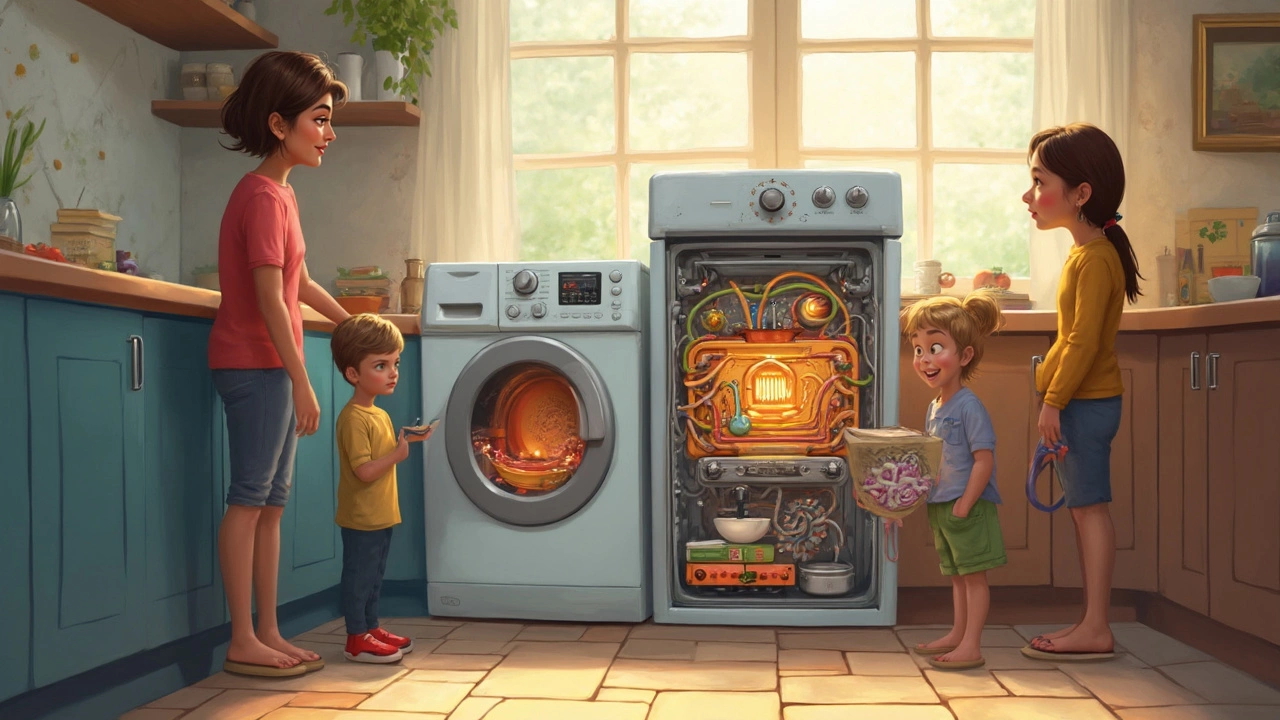Appliance Guide – Simple Tips to Keep Your Home Devices Working
Every house has a mix of gadgets that make daily life easier – from the fridge that keeps food fresh to the washing machine that saves you trips to the laundrette. When one of them stops, it can feel like a mini crisis. This guide shows you what counts as an appliance, why a little upkeep matters, and how to decide if you should fix it yourself or call a pro.
What Is an Appliance?
In plain English, an appliance is any machine that helps you do a household job. Think of the big ones you see in every kitchen and laundry room – ovens, hobs, microwaves, dishwashers, washing machines, dryers, fridges, freezers – and the smaller but essential items like toasters, coffee makers, and extractor fans. If it plugs into a socket or runs on gas and does work for you, it’s an appliance.
Knowing the definition helps when you search for service. Some companies specialize only in kitchen gear, while others cover laundry and heating. Look for a technician who lists the exact type you need – that way you avoid wasted trips.
Keeping Your Appliances Happy
Most problems start because we skip regular caring. A quick once‑a‑year check can stop costly breakdowns. Here are three easy habits:
- Clean the filters. Dishwashers, dryers and extractor fans have removable filters that trap lint and grease. Rinse them with warm water and let them dry before putting them back.
- Check seals and gaskets. The rubber around fridge doors and washing‑machine doors can crack over time. A leaky seal forces the appliance to work harder and can cause water damage.
- Listen for odd noises. A humming fridge or a rattling oven often signals a loose part. Address it early and you’ll avoid a full‑blown failure.
If an appliance starts showing warning signs – like a dishwasher that won’t drain, an oven that won’t heat, or a washing machine that leaks – decide whether the fix is worth it. A good rule of thumb is the 50‑percent rule: if the repair cost is more than half the price of a new unit, think about replacing. That said, some parts, like a fridge compressor or a dryer drum, can be pricey, so getting a quote from a local expert helps you weigh options.
When you’re unsure, a quick phone call to a trusted service like South Shields Appliance Repair Services can clear things up. Their technicians know the common faults for each appliance type and can give you a realistic price before they start work.
For gas‑fired appliances – stoves, boilers and certain ovens – always check that the technician is Gas Safe registered. Safety isn’t optional, and a certified pro will handle gas lines correctly.
Finally, keep a simple log. Jot down the model number, purchase date, and any service visits. This makes warranty claims easier and helps you spot patterns, like a fridge that needs a new compressor every few years.
Bottom line: regular cleaning, quick inspections, and smart decisions about repair versus replace keep your appliances humming and your home running smoothly. When a problem does pop up, don’t scramble; call a local, certified repair service and get it sorted fast.

